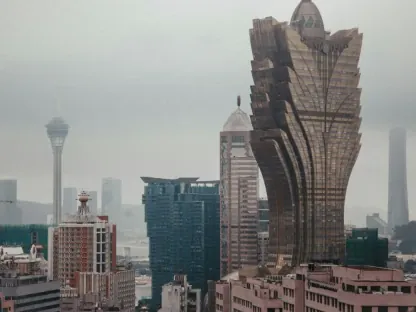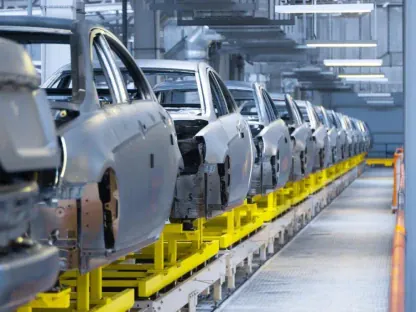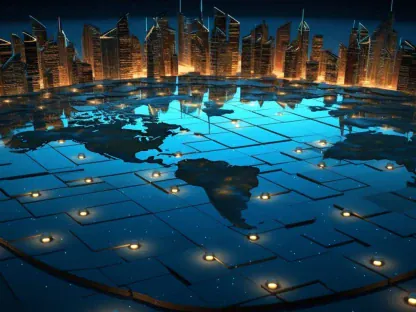The COVID-19 pandemic has magnified global inequalities, bringing into sharp focus the divide between the affluent and the less fortunate. What began as a health crisis quickly rippled out into an economic and social catastrophe, underscoring the gulf that separates different societal strata. The onslaught of the virus forced a reckoning with existing disparities, highlighting how some individuals and communities are disproportionately affected by such emergencies.As the world grappled with the pandemic, the resultant lockdowns and economic disruptions hit lower-income populations hardest. Many of these individuals work in sectors that were severely affected by shutdowns and could not afford the luxury of working from home. Conversely, the wealthier segments often found ways to insulate themselves or even capitalize on economic trends, potentially widening the wealth gap even further.In the likely aftermath, the world now faces an alarming possibility of a more unequal society. This crisis has not only laid bare the existing inequities but also, in many instances, worsened them. Thus, as recovery plans take shape, there is a critical need to address these disparities aggressively to prevent a future where wealth inequality is more deeply entrenched than ever before. The daunting task lies in ensuring that the pathway to recovery is inclusive and equitable, providing opportunities for all, rather than a select few.
The Disparity in Numbers
The Pandemic’s Impact on Billionaire Wealth
The COVID-19 pandemic has been an improbable financial boon for the billionaire class. Between the early outbreaks in 2020 and the subsequent months, reports surfaced of an almost vertical ascent in billionaire fortunes. The pandemic induced a stark divergence in economic prospects – on the one hand, we saw the traditional sectors suffer, while on the other, technology and pharma sectors soared, the stocks of which many billionaires own in abundance. This unusual market dynamic was a primary propellant of their wealth accumulation. The figures are nothing short of staggering. A study tracking this meteoric rise found an 88% increase in the wealth of U.S. billionaires within a four-year window. Billionaires like Elon Musk and Jeff Bezos expanded their fortunes by tens of billions, sowing seeds of controversy amid global hardship. This data throws a harsh light on the diverging fortunes and underscores the widening gap between the ultra-wealthy and the average citizen.
The Other Side of the Coin: Public Economic Struggle
The surge in billionaire wealth presents a jarring contrast to the experiences of the vast majority. Millions faced the brunt of the pandemic with layoffs, slashed incomes, and vanished job opportunities. The tales of struggle are manifold – from frontline workers to small business owners, the pandemic indiscriminately stripped the financial security of countless families.The economic turmoil did not spare any corner of society. As the pandemic raged, many lost their health coverage exactly when they needed it most. A surge in the demand for public assistance programs, like food banks and unemployment benefits, painted a grim picture of the economic precarity that became commonplace. These narratives of struggle and uncertainty chart a course in total opposition to the financial successes of those atop the wealth pyramid.
Systemic Issues and Causes
Market Dynamics and Technological Advancements
The surge in billionaire wealth, paradoxically in the face of a global crisis, can be attributed to two key factors: stock market resilience and technology-led growth. While broad market indices plummeted during the initial outbreak, they made a swift comeback, and certain sectors even thrived. Namely, technology and pharmaceuticals saw substantial growth, both being pivotal in pandemic response and adaptation.The technology sector’s buoyancy is partly because of the accelerated digital transformation necessary for businesses and individuals to navigate lockdowns. Remote work, e-commerce, and cloud computing witnessed a surge, directly benefiting tech giants and, by extension, their major shareholders. This sector-specific boom underscores the asymmetric effects across different parts of the economy, exacerbating the wealth gap.
Tax Structures and Legislative Stalemates
The critical underpinnings of wealth accumulation also lie within the tax infrastructure. Critics argue that the current tax codes are too lenient on the wealthiest, enabling them to amass greater fortunes while contributing relatively little back into the public coffers. Efforts to rectify this through progressive tax reforms have met with staunch opposition, resulting in legislative gridlocks.The pandemic has intensified calls for tax justice with proposals ranging from wealth taxes to closing loopholes. However, any significant overhaul of tax policy has faced hurdles within political arenas. This legislative stagnation maintains the status quo, providing a continual advantage to those already at the apex of wealth, and raises questions about the role of governance in addressing inequality.
Wealth Concentration and Its Consequences
Economic Inequality and Social Outcomes
The concentration of great wealth within the top economic strata doesn’t occur in a vacuum; its effects ripple through society, causing economic and social rifts. Wealth disparity contributes to increased tension, affecting everything from healthcare to housing availability. This widening chasm also feeds political divisions and fosters societal grievances, which can destabilize our communal cohesiveness.The phenomenon extends beyond mere data, shaping how individuals experience life and influencing views on justice and equality. It also sparks significant debate on the desired structure of our society. In times when many economies are striving to bounce back, the presence of immense wealth at the top echelons raises pressing issues regarding the intersection of financial governance and ethical responsibility.
Contemplating Fairness and Economic Sustainability
The stark contrast between the soaring wealth of billionaires during the pandemic and the economic difficulties faced by many has sparked a debate over economic fairness and the viability of our current system. The question arises: is it right for such a small segment of society to hold disproportionate wealth when so many experience financial uncertainty?This gap in wealth highlights potential flaws in how wealth is created and held. It’s not enough to simply adjust the numbers; we must consider the strength of the underlying social contract that supports our economy. As we look to the future, there’s a growing sense that our economic structure needs to evolve to one where wealth potential is more widely accessible, not just concentrated in the hands of a few.This conversation isn’t merely academic—it’s about the real-world implications of wealth distribution and its impact on the fabric of society. Ensuring an economically sustainable system could involve a fundamental shift in our approach to distributing resources and opportunities.
The Path Forward: Addressing the Wealth Gap
Calls for Change: Tax Reforms and Social Programs
The glaring disparities have catalyzed a plethora of calls to action. Advocates from diverse backgrounds – economists, social activists, and political figures – have pushed for a range of measures, from tax reforms to social safety net expansions. Their rallying cries are for a system that is more equitable, where the ultra-wealthy contribute their fair share.Proposals such as wealth taxes, higher rates for top income earners, and closing loopholes have frequently surfaced in public narratives. These are balanced by calls to enhance social programs – to provide more comprehensive healthcare, improved access to education, and a more substantial safety net for the vulnerable. Enacting such changes presents an array of challenges, especially in a polarized political atmosphere, but they may be necessary for closing the wealth gap that the pandemic has so starkly exposed.
Innovation and Inclusive Growth Strategies
In search of solutions, fostering innovation and ensuring growth that is broadly shared stand out as potential strategies. Forward-looking solutions could involve investing in universal education, supporting small businesses, and strengthening infrastructure, all aimed at cultivating an environment where economic benefits can be more evenly distributed.These strategies emphasize the need for inclusive growth—a model where advancements in technology and increases in productivity translate into real gains for all societal layers, not just the upper echelons. Investments in the future – be it renewable energy, digital accessibility, or public health – can be designed to serve the dual purpose of innovating for progress while consciously reducing inequality.By dissecting the financial dichotomy exacerbated by the COVID-19 pandemic, this article aims to shed light on the intricate complexities of wealth inequality while exploring avenues towards building a more equitable future.









